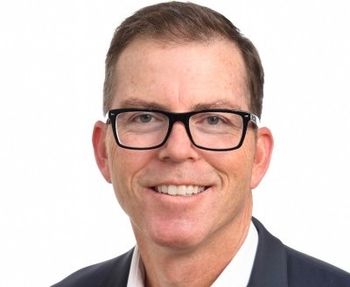
Medicaid at 60: Warnings of ‘access at risk’
On the anniversary of the program covering tens of millions of Americans, health leaders warn that impending cuts could hurt vulnerable Americans.
The 60th anniversary of the creation of Medicare and Medicaid has spurred healthcare leaders to celebrate the historic act while calling on lawmakers to ensure the programs have a future.
Healthcare leaders and elected officials noted the 60th anniversary Wednesday of the date President Lyndon B. Johnson signed legislation to create the programs.
President Trump and the Republican-led Congress brokered
Chip Kahn, president and CEO of the Federation of American Hospitals, said the creation of Medicare and Medicaid helped tens of millions who “lived in fear of illness.”
But Kahn said he worries about reduced access to those safety net programs.
"Impending cuts to Medicaid and the expiration of the health care tax credits, coupled with continuously threatened Medicare cuts, place millions of Americans' health coverage and access at risk,” Kahn said in a statement.
“As we celebrate the anniversary of Medicare and Medicaid, we need a reaffirmation of that promise to ensure the most vulnerable across our country will continue to get the care they expect and deserve," Kahn said.
The Catholic Health Association of the United States,
“Every day, our ministries serve children, older adults, people with disabilities, and families who rely on Medicaid for essential care,” the Catholic association said. “As we celebrate this milestone, we reaffirm our advocacy to strengthen and protect the program for generations to come.”
Children’s hospitals have said
“It is critical that the Medicaid program continues to be supported to ensure that all children can access the care they need to grow into healthy adults,” Ossman said in a statement Wednesday.
Brad Woodhouse, president of Protect Our Care, slammed Republicans for cuts in coverage as opposed to bolstering the programs.
“Millions of Americans now face soaring health care costs or risk being kicked off their coverage entirely,” Woodhouse said in a statement. “Donald Trump and Republicans made a conscious, calculated choice to rip away health care coverage for millions of Americans just so the rich can get richer. After 60 years of progress, they’re dragging us backwards, putting politics and profits ahead of people’s lives.”
Sen. Patty Murray, a Democrat from Washington state, posted a message on X that the public should recognize that Republicans have enacted the largest cut to Medicaid and federal support of health care in the nation’s history.
“The fight to reverse these cuts is today and every day until we do,” Murray said.
Illinois Gov. J.B. Pritzker, a Democrat, also noted the anniversary and the coming cuts to Medicaid.
“Uust weeks ago, Donald Trump made the largest cuts in history to these programs,” Pritzker
Healthcare industry leaders and analysts say
Medicaid enjoys strong popularity with Americans, with 83% of Americans having a favorable opinion of the program, according to






























